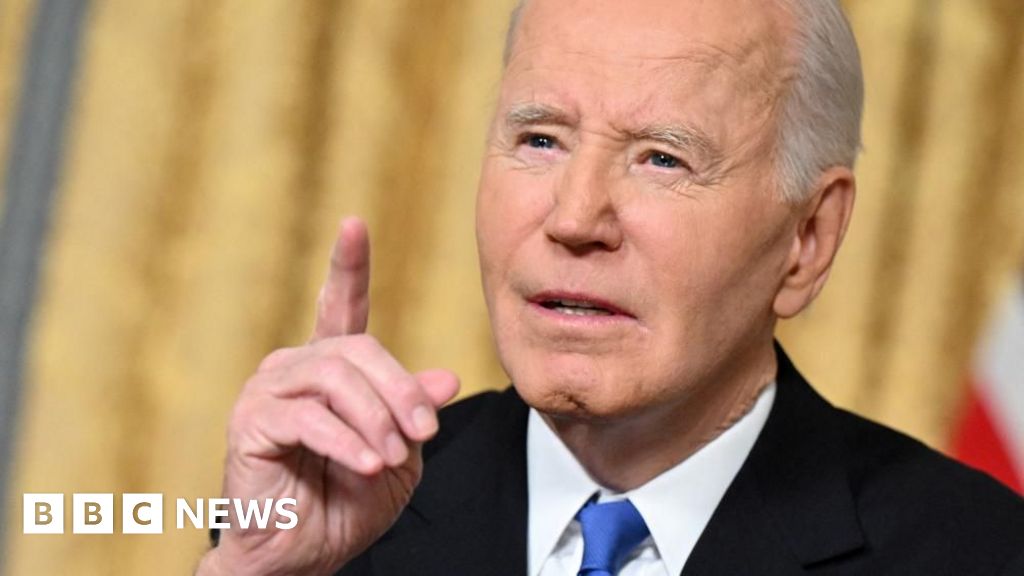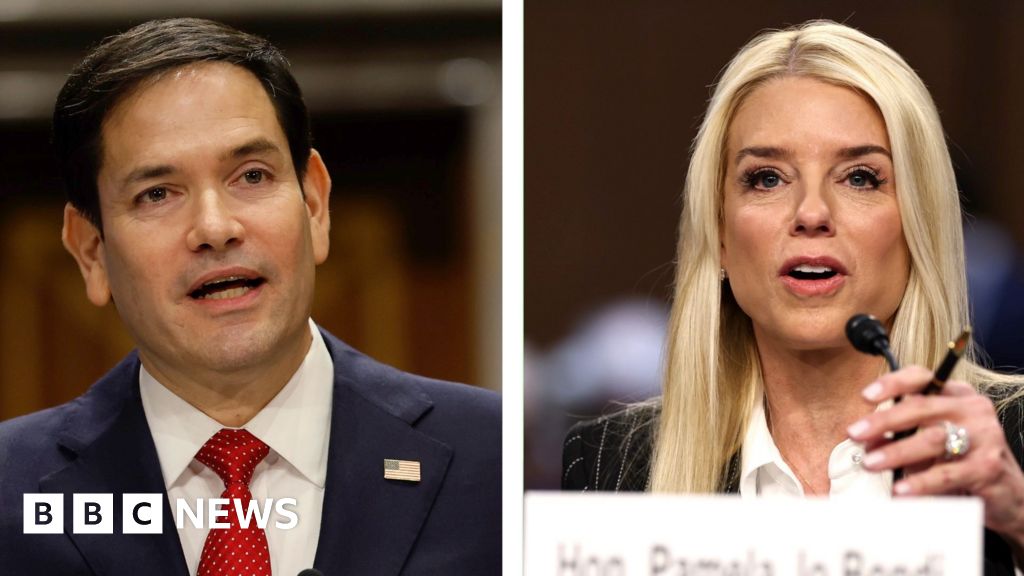ARTICLE AD BOX
US President Joe Biden hailed "many months of intensive diplomacy" for bringing about a ceasefire agreement between Israel and Hamas, as he outlined the next steps of the deal to end 15 months of war.
At a White House briefing on Wednesday, he said he was "deeply satisfied this day has come" and called the negotiations some of the toughest of his career.
The agreement consists of three phases, Biden said, the first of which includes a "full and complete ceasefire" which will begin on 19 January – the day before he leaves office.
He said a still to be negotiated second phase of the agreement would bring a "permanent end to the war", adding that he was confident the deal would hold.
Biden told reporters that the first phase would involve the withdrawal of Israeli forces from all the populated areas of Gaza, the release of hostages held by Hamas – including women, elderly and wounded prisoners – and the release of hundreds of Palestinian prisoners.
- Follow live updates: Israel and Hamas reach Gaza deal
- What we know about the Gaza ceasefire deal
- Jeremy Bowen: Long-overdue ceasefire may stop killing but won't end the conflict
"Soon the hostages will return home to their families," he said, adding that during the first phase "Palestinians can also return to their neighbourhoods in all areas of Gaza."
"There are a number of details to negotiate to move from phase one to phase two, but the plan says if negotiations take longer than six weeks, the ceasefire will continue as long as the negotiations continue," Biden said.
The president said phase two would involve the release of all remaining living hostages, including male soldiers, as well as any remaining Israeli forces withdrawing from Gaza. The temporary ceasefire would become permanent at this stage, he said.
The third phase would include returning the remains of hostages who have been killed to their families and a "major reconstruction plan" for Gaza.
While Biden said his administration had been "speaking as one team" with the incoming administration of Donald Trump, the president emphasised his own role and that of his administration in closing the deal.
He said the framework for the agreement followed "the precise contours" of a plan he first introduced in May 2024.
"The road to this deal has not been easy," he said. "I've worked in foreign policy for decades. This is one of the toughest negotiations I've ever experienced."
And just as the news conference ended, the president was asked who should take credit for the deal – him or Trump.
Biden turned back and said "is that a joke?" before walking away.
Trump, meanwhile, said on Truth Social that the agreement was only possible because he won November's presidential election.
"It signalled to the entire World that my Administration would seek Peace and negotiate deals to ensure the safety of all Americans, and our Allies," he wrote.
Despite the duelling, the two administrations worked in close co-ordination as the ceasefire agreement came into view in recent days.
Both Biden's envoy Brett McGurk and Trump's envoy Steve Witkoff, for example, were in Doha as the talks reached the finish line.
"The involvement of President-elect Trump's team has been absolutely critical in getting this deal over the line," State Department spokesman Matthew Miller told reporters. "And it's been critical because... this administration's term in office will expire in five days."
Later on Wednesday, the office of Israeli Prime Minister Benjamin Netanyahu said he had spoken to both Biden and Trump to thank them for helping to secure a deal for the release of hostages held in Gaza.

 8 hours ago
3
8 hours ago
3








 English (US) ·
English (US) ·